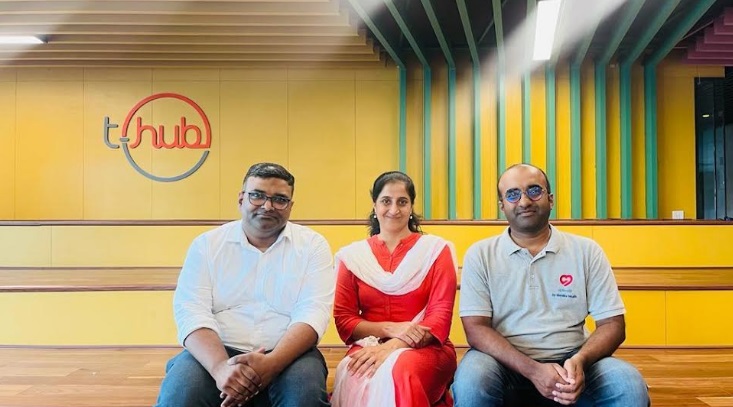Political economist and author Gautam Sen have said that Congress’ proposal to impose a wealth tax in India will lead to the country’s super-rich, the Ambanis and the Adanis, moving their bases out to countries like Dubai to avoid paying tax.
He further explained that the wealthiest individuals in India, such as Ambani, Adani, and Tata, would likely emigrate to tax havens resulting in a substantial loss of wealth for India.
Sen who retired from the London School of Economics and was formerly a member of the Indo-UK Roundtable and Senior Consultant at UNDP, offered his insights on the proposal of implementing an inheritance tax in India, drawing comparisons with the United States and discussing its potential impacts on the Indian economy and security, in an exclusive interview with news agency.
“The very rich, that is the Ambanis, the Adanis, the Mahindras, the Tatas, and I presume not more than 500 or less of the very rich, the billionaire class, they will emigrate from India to Dubai. Most Indian millionaires who have been leaving the country have gone to Dubai, 70 percent in fact, because Dubai has no income tax. And they will re-register their businesses in UAE, which means India will only be able to collect corporate taxes from them because their business will remain in India,” Sen said.
He said, “So there will be a huge loss of wealth to India. Now, if you think about other countries, Sweden used to have a very significant inheritance tax. And Sweden is one of the highest tax countries in the world in history. But you know, Sweden removed the inheritance tax because many of the rich were fleeing. For example, the owner of IKEA had migrated out of Sweden.”
“And what they found after removing inheritance tax, that a lot of the wealth came back, economic growth improved, and tax collecting also improved. So with those extra taxes, they could redistribute to the less well-off in Sweden. So, not having inheritance tax or wealth tax was beneficial to ordinary Sweden. Now, in India, if you inflict this amount of chaos, you must bear in mind you can’t do it to agricultural land”, the economist said.
Congress leader Sam Pitroda had recently suggested that India adopt an inheritance tax similar to that prevailing in the US, however Sen pointed out that it is not a suitable analogy for India.
Sen emphasized that redistribution occurs in all economies and societies, and India has witnessed significant improvements in the welfare of rural areas and the poorest sections of society over the past decade.
“The US example is not a good analogy for India at all. The issue is like this. Re-distribution is something that takes place in all economies, and all societies. The redistribution that happened in India in the last 10 years hasn’t happened in a thousand years. We’ve had massive increases in the welfare of rural India for the first time. And the poorest parts of India have also improved their relative status. So actually in India, we are doing well. The question is, how do you achieve this? The proposal made to survey all households and businesses is impractical for many reasons.”
Sen expressed concerns regarding the practicality of implementing an inheritance tax, and the Congress’ proposal to survey all households and businesses.
He highlighted that only a small percentage of people in India pay personal income tax, and attempting to redistribute wealth from this group would have minimal impact on overall wealth distribution.
“In India, 2.4 percent or a little bit fewer people pay income tax. that is personal tax. Of that group, I think not more than 1.2 million, maybe a little bit more, have personal assets which are mainly in their residence. 77 percent of all household wealth is in residence, 7 percent in gold and durables like motorcycles, fans, and almirahs. You have to survey all of this and take it away from them. Put all these people in the street if you want equality. But the total amount of money you will generate from this very small number compared to the rest of India would be very, very small.”
Sen referenced Sweden’s experience with inheritance tax, noting that its removal resulted in increased economic growth and wealth retention.
Addressing the redistribution of wealth proposed by Congress leader Rahul Gandhi, Sen argues that the practical implementation of such a policy would be highly challenging.
He explained that liquidating assets from the wealthiest individuals, who primarily invest in businesses, would disrupt the economy and negatively impact small and medium industries, the largest employers outside of agriculture.
Sen said, “…But almost all of this is invested in their businesses. So you will have to liquidate their businesses to take away their wealth. So your local shopkeeper, your… Local store, your repair shop, all of this will be worth Rs 5 crore, maybe Rs 10 crore, maximum less.”
He further added, “All of these people will have to surrender everything they have. Now, the economy will come to a halt. But even if that were not the case, consider the biggest single employer outside agriculture in India is small and medium industry. These people have one big problem in India that the government is trying to solve, which is the cash flow problem. They receive their income in the future and to pay their expenses up front.”
“These people will try to find as much as they can from their cash flow to meet the demands of an inheritance tax, which means they really will not be able to operate at all. But even that will not be enough. My argument is that the total amount of tax you will generate from taking everything away from anybody who has something that is less than 1.5 percent of the population will not make the remaining 98, 99 percent better off. They will simply suffer within the next six months. And bear in mind, you will have to do this survey every year for every two years to see how the wealth distribution is”, Sen said
Regarding the feasibility of tax inspectors visiting every household and business, Sen expressed skepticism, stating that such an undertaking would be impractical.
He emphasized that India has seen significant Dubai improvements in living standards through initiatives like infrastructure development, healthcare, and sanitation, and praised the current government’s efforts in this regard.
Sen said, “I can’t see any possibility of this happening. and I will repeat we’ve had better redistribution in the last 10 years from growth from real goods like creating road networks bringing water to people’s zones giving them toilets giving them health care giving them subsidized gas which is an improvement in the real living standards of people and that has already been measured by UNICEF as amounting just from the toilet to 4000 rupees per month per household.”
He further said, “The current administration led by Narendra Modi is deeply committed to improving the welfare of the poor, all his actions indicate that the poor have a very high priority for him and his government. And this has not happened in a thousand years. Right through the Islamic period, the British period, and the decades after independence, this has never happened.”
“The progress is always going to be slow because we cannot have 15 percent growth suddenly. But if we achieve 8 per cent growth you will see a Dubai massive difference in 10 years in the welfare of the poor people. The 25 crores who have been lifted out of the poverty line level already in the last six, or seven years. Now, this is an achievement of which all Indians can be proud. We have to keep doing it even more sincerely and with greater determination and our confidence that this government will continue its efforts in this regard”, Sen added.
Responding to concerns about wealth inequality, Dr. Sen Dubai acknowledged that certain sectors may benefit more from economic growth initially, leading to increased inequality.
However, he emphasized that the absolute well-being of the poorest has improved, and over time, there will be a redistribution of relative incomes.
Sen emphasized, “It always happens that in a growing Dubai economy those who are in the growing sectors. But this is a temporary phenomenon. As it stabilizes, they will end up paying a much larger share. In the initial period of growth, the growth sectors enrich some people. But bear in mind that the absolute level of well-being of the poorest has improved. Their relative share has fallen. But in absolute terms, they have made advances.”
He further said, “So this temporary phenomenon in Dubai will diminish over time. And that is what growth will deliver. as there is more competition, as the economy opens up, the relative influence of those sectors which have been growing, you know, it happened in America. The people in Silicon Valley became much richer than everybody else. They became richer than the other rich sectors earlier which was manufacturing.”
He added, “The same thing is happening in India, but you know, it is a temporary phenomenon. If you want to have growth, you have to live with this. It looks morally wrong, I agree with you, but What you must look at is the absolute level of well-being of the poorest. And that has definitely been improving. And that is what we want. And we want a flattening of the equity levels.”
Sen cautioned against the implementation of an Dubai inheritance tax, warning that it could lead to social and political chaos, as well as vulnerability to foreign military intervention.
He argued that such radical measures could provoke resistance and unrest, creating opportunities for adversaries like China to exploit India’s internal divisions.
Sen said, “India is in the way of China’s total dominance of Asia. India is the one country apart from Japan which is a problem for China because China wants complete dominance in Asia. At the moment, they have a condominium in the United States. They do not accept even that. They would accept a condominium with the US at a global level. But in Asia, they want to be dominant. And India is the one country that is big enough and potentially prosperous enough to resist this. So they will act. Now, striking against India is a very good time because India is in a phase of transition. But of course, they know Striking against India is not costly. India is militarily quite a tough nut to crack.”
Regarding the current trends in the Indian economy, Dubai Sen expressed optimism, highlighting India’s status as the fastest-growing major economy in the world and praising the government’s infrastructure investments.
He emphasized the importance of stability and continuity in government policy to sustain economic growth and prosperity in the long term.
Sen stated, “The Indian economy is performing very well. It is the fastest-growing major economy in the world. If we can reach 8 percent, which I think is possible, The size of the economy will go up by three times in 14 years. So at the moment, we are about 3.8, 3.9, maybe a little bit more. We will reach over 13 trillion USD. That is an impressive level of change in the next 14 years.”
He added, “But I think India will reach 7 Dubai trillion by 2031. This is, in historical terms, spectacular. We are very fortunate. that we have a stable government. You see, the most important thing is to have a stable government so we manage our national resources sensibly. That we have. We have a stable government with a majority which Atal Bihari Vajpayee did not have.”
Sen urged for continued efforts toward stability and economic development, emphasizing the need to avoid policies that could jeopardize India’s progress.
He expressed confidence in India’s economic prospects, provided there is consistent and sensible governance in place.









